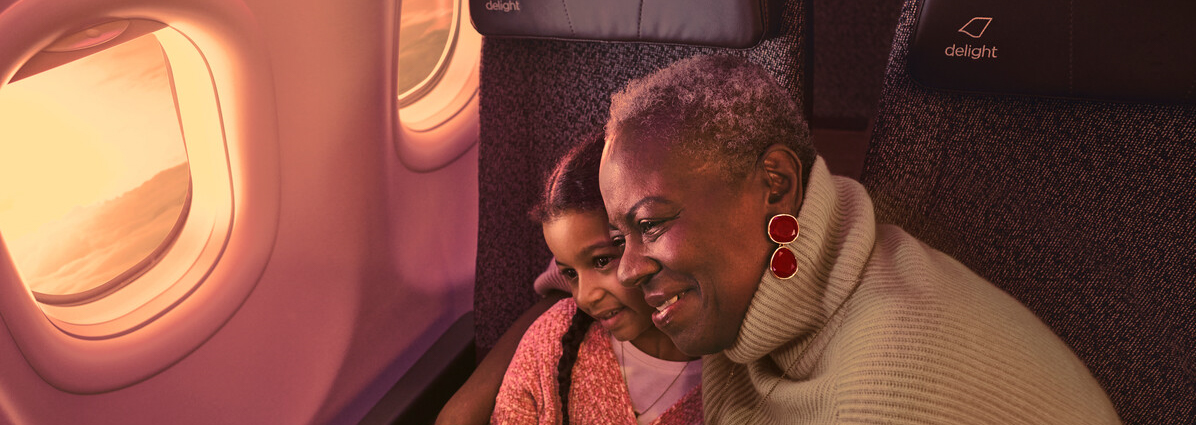Helping you travel more sustainably
We have a responsibility to reduce our impact on the planet in any way we can. And that means finding ways to help you fly more sustainably too, starting with what we carry onboard. One of the main things we can all do differently is to carry less stuff. Flying lighter means our planes burn less fuel and produce less emissions. Simple really. That’s why we’re changing how we operate, personalising your experience to create less waste, and moving to more lightweight materials where possible. They might sound like small things, but we can great progress if we work together and see the world differently.
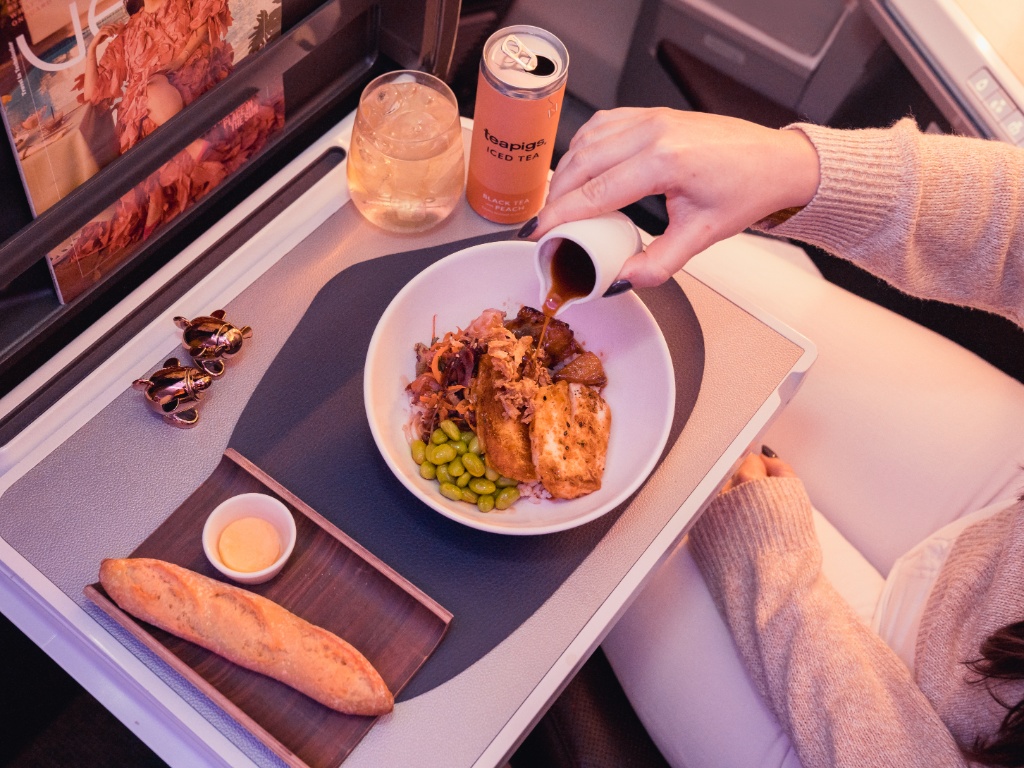
Thoughtful food
We serve more than 12 million meals onboard every year, so it’s important to us that we provide the finest food and drink experience while ensuring our meals are sourced responsibly.
Since 2014, Virgin Atlantic has been working to ensure the meals we serve each year are produced in the best way for people, animals and the planet. We have created a comprehensive programme, which asks all our suppliers and caterers to meet standards that go well beyond regulatory requirements in five key areas; Fair farming, sustainable fish, forest friendly, more veg and better meat and reducing waste and plastic. We work collaboratively with caterers across all the locations from which we fly to help them continually improve in these areas.
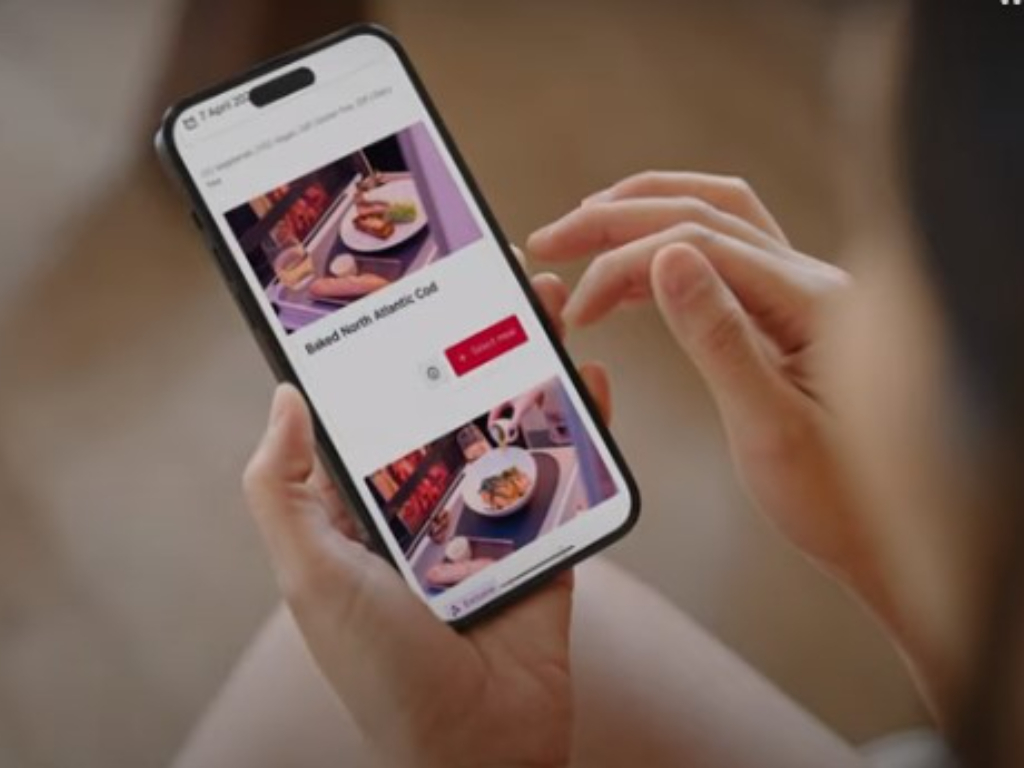
Pre-order from the menu
Our pre-order service puts you in the pilot's seat, so you can choose what you want to eat before you fly. helping to reduce waste at the same time.
First launched in 2019, pre-order is now available to customers flying in our Upper, Premium and Economy Delight from 7 days before departure. This means that if you're flying with us, you can look forward to something that really takes your fancy, rather than something you don't. Or if that's nothing at all, you can let us know that too.
As we continue to roll our our pre-order service, it will help us to reduce our food waste through more efficient planning and loading.
Plastic and waste
We are constantly finding ways to reduce the weight and waste onboard, whether that's through innovative product design, investing in reusables or by loading smarter. We work with suppliers to trial and test new products made out of alternative materials so we can increase recycled content and move to more light-weight packaging where possible. Sometimes, plastic is still the best option as alternatives can be heavier which burns more fuel, resulting in more carbon emissions. Where we do still use plastic, we try to make sure it's made from recycled materials.
We’re proud that we've been able to remove or replace 90% of raw (virgin) single use plastic by weight since 2019 - the equivalent of 61.4m flown items per year.
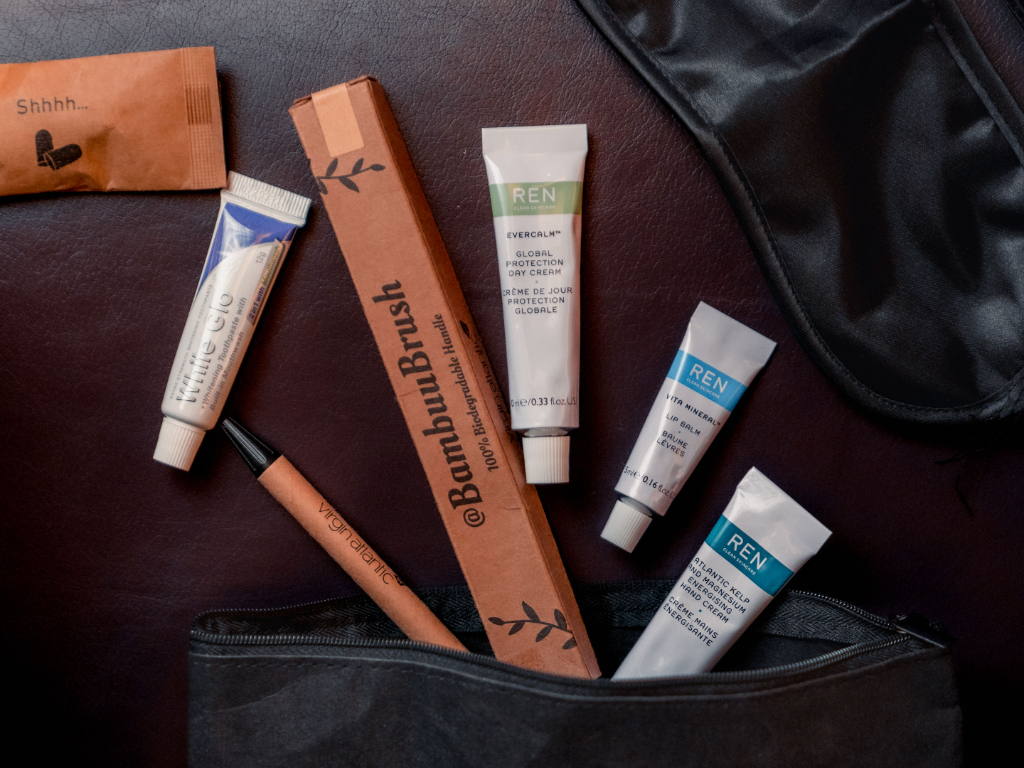
For example, the sponges from your headset can be used to surface an equestrian centre, while the plastics can be turned into garden picnic benches. Old blankets can be donated to animal and homeless shelters, while the untouched goodies from your amenity kit are collected and repurposed to make up a new one.
You may notice that your paper Change for Children charity envelope has been designed to fit neatly around your headset. This move alone means we‘ve been able to do away 12 tonnes of plastic every year, saving a massive 6.5 tonnes of onboard weight, and 18 tonnes of CO2 emissions.
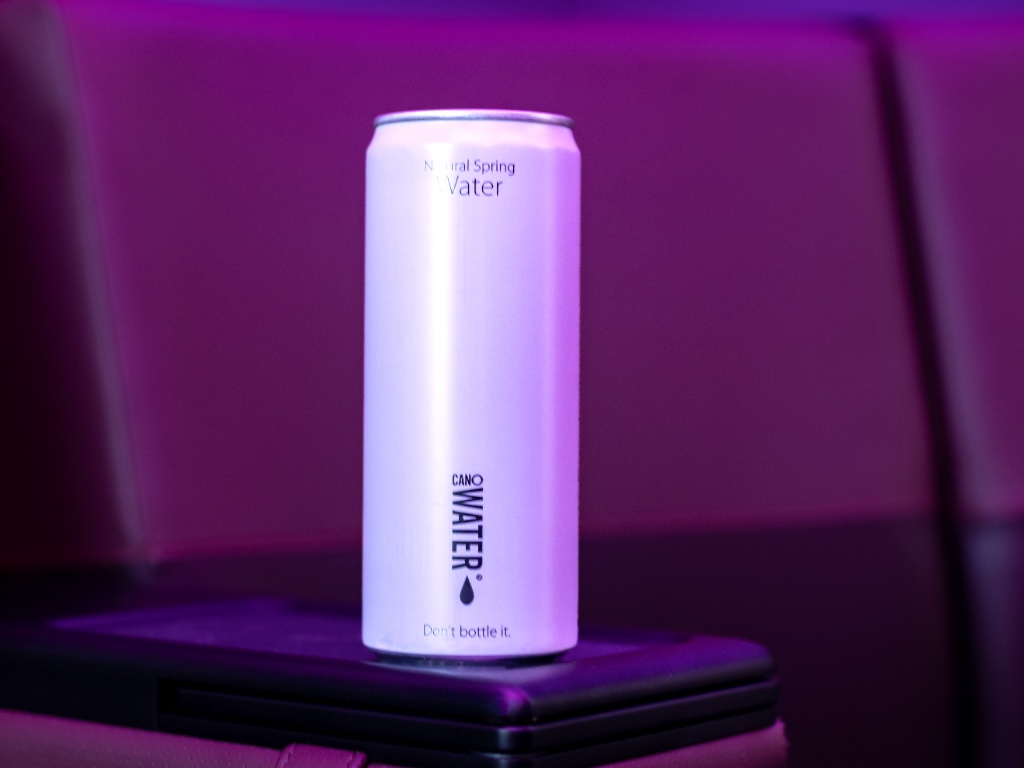
When it comes to our cabin amenities, we‘ve been working with MNH Sustainable Cabin Services for a number of years to make sure every headset, blanket and amenity kit is made with sustainability front of mind. Our onboard goodie bags, for example, are made from responsibly-sourced and recyclable material. We’ve switched to bamboo toothbrushes, recycled paper pens and aluminium tubes, saving 9.5 tonnes of plastic per year.
Although stringent international regulations make it impossible to recycle our onboard catering waste in many cases, our partnership with MNH means we’re able to recycle lots other cabin waste.
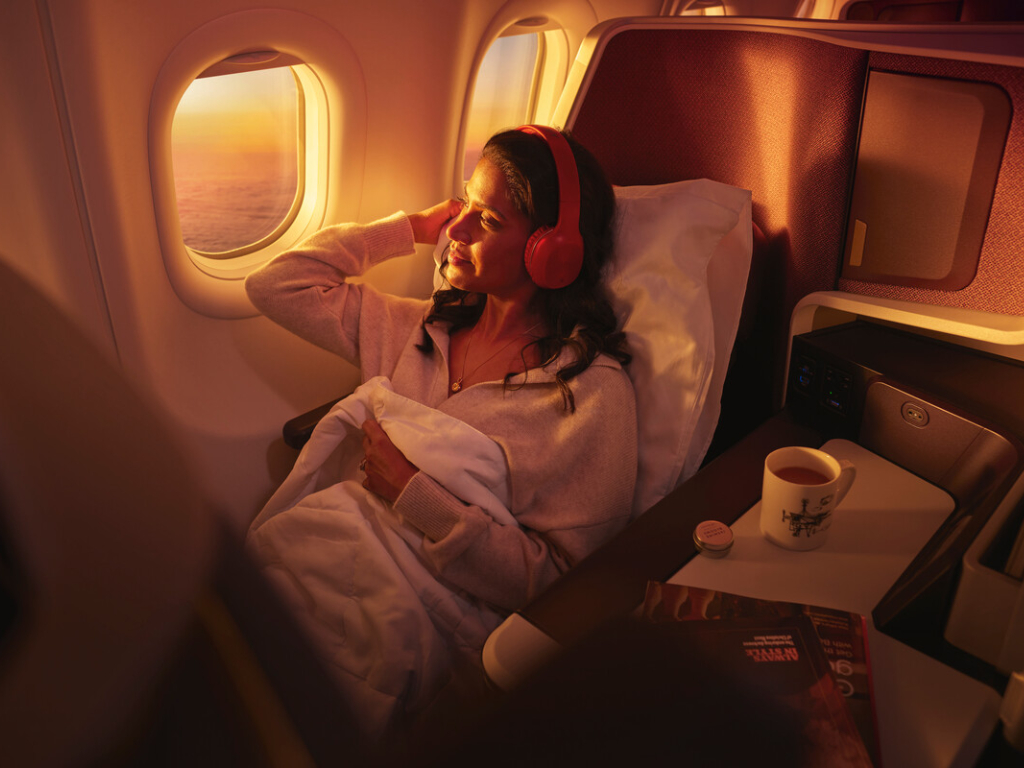
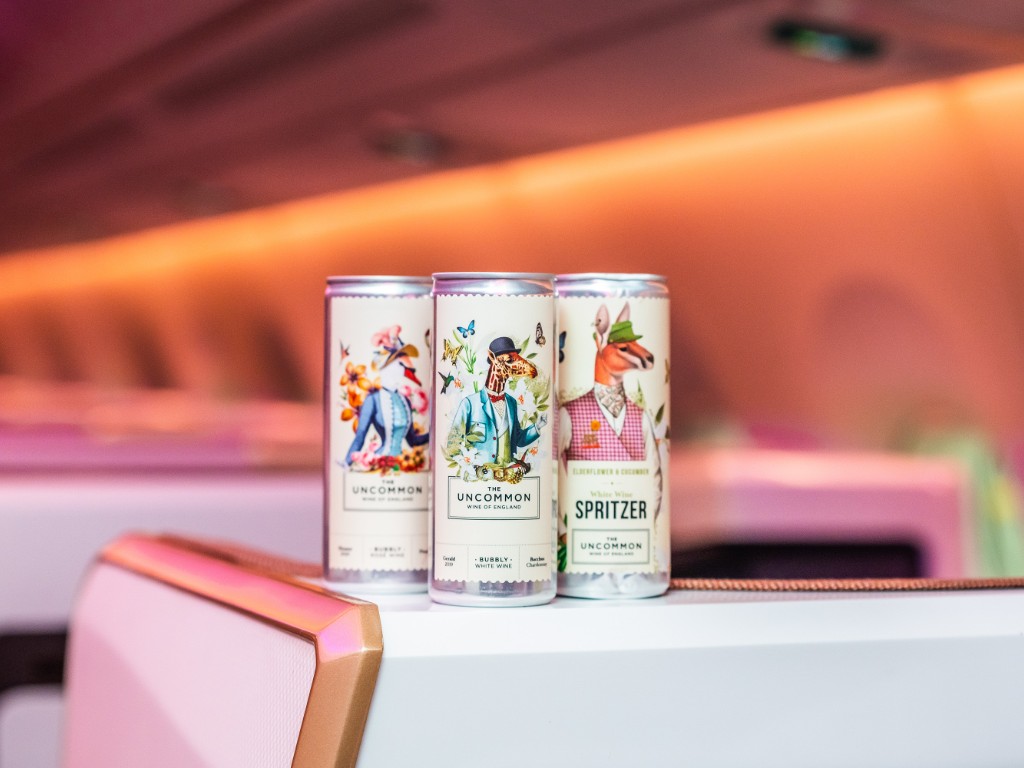
We’ve reduced or replaced 90% of virgin single use plastic inflight items by weight, that’s the equivalent of 60m flown items this includes:
• 7.3m pieces of plastic cutlery items replaced with pressed cardboard
• 11m individual water bottles removed and replaced with canned wine or our crew pouring service
• 5.9m individual wine bottles removed and replaced with canned wine
• 28m plastic economy glasses moved to 95% recycled content
• 6.6m hot meal containers replaced with Bagasse, a material from sugarcane
In the Clubhouse
Our Clubhouse teams work hard to ensure the food in our lounges is thoughtful too, with menus that are all at least 70% plant-based. In March 2023, our London Heathrow Clubhouse launched a partnership with Full Circle Farms to supply fresh local produce. The community farm in West Sussex uses small scale, regenerative farming processes to ensure no pesticides or herbicides are used and provides a variety of fruits, vegetables and herbs to our menu at Heathrow.
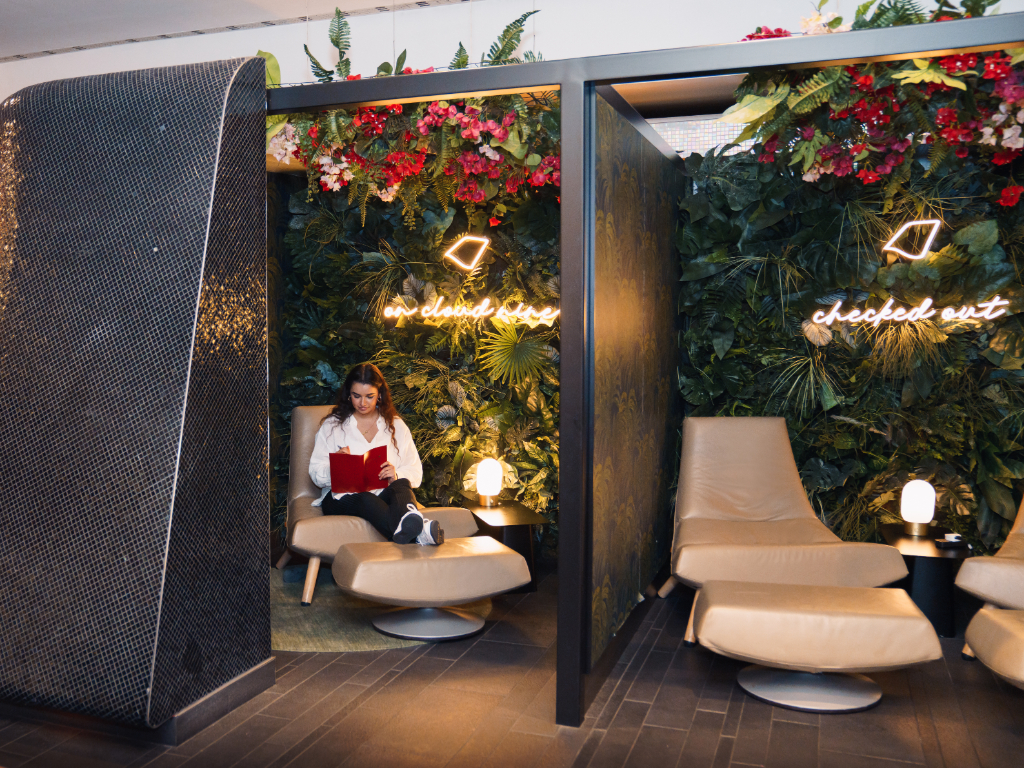
Find out more
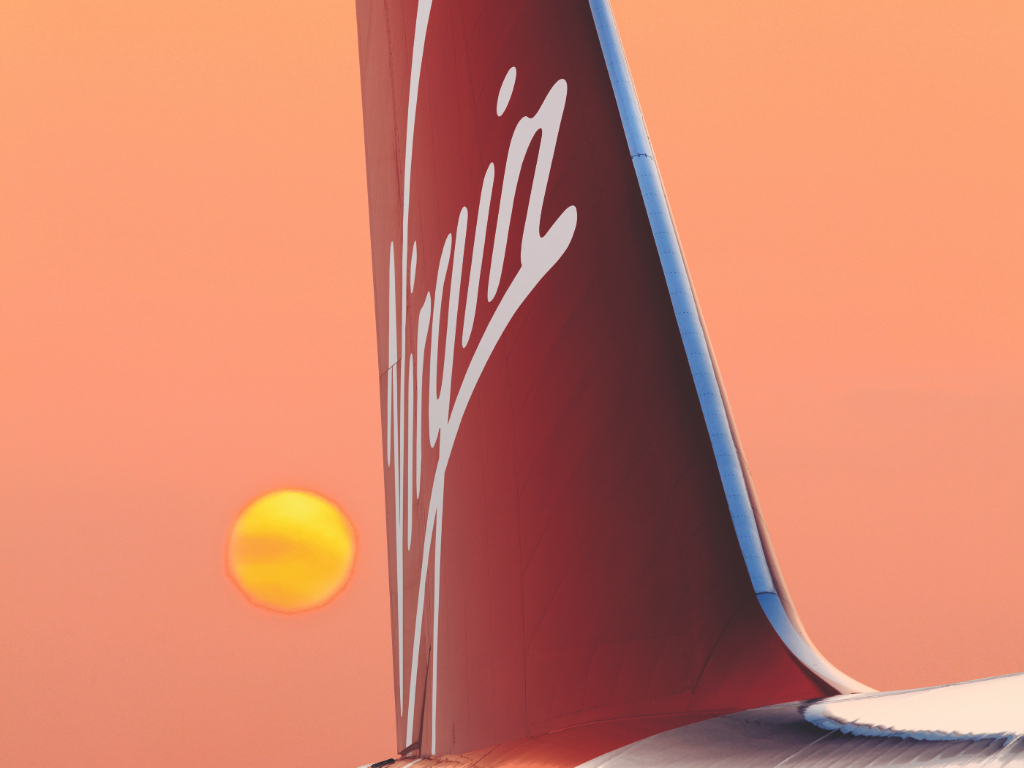
Fleet
Following a multi-billion-dollar investment, we've invested in upgrading our aircraft so we now operate one of the youngest and most fuel efficient fleets in the skies.
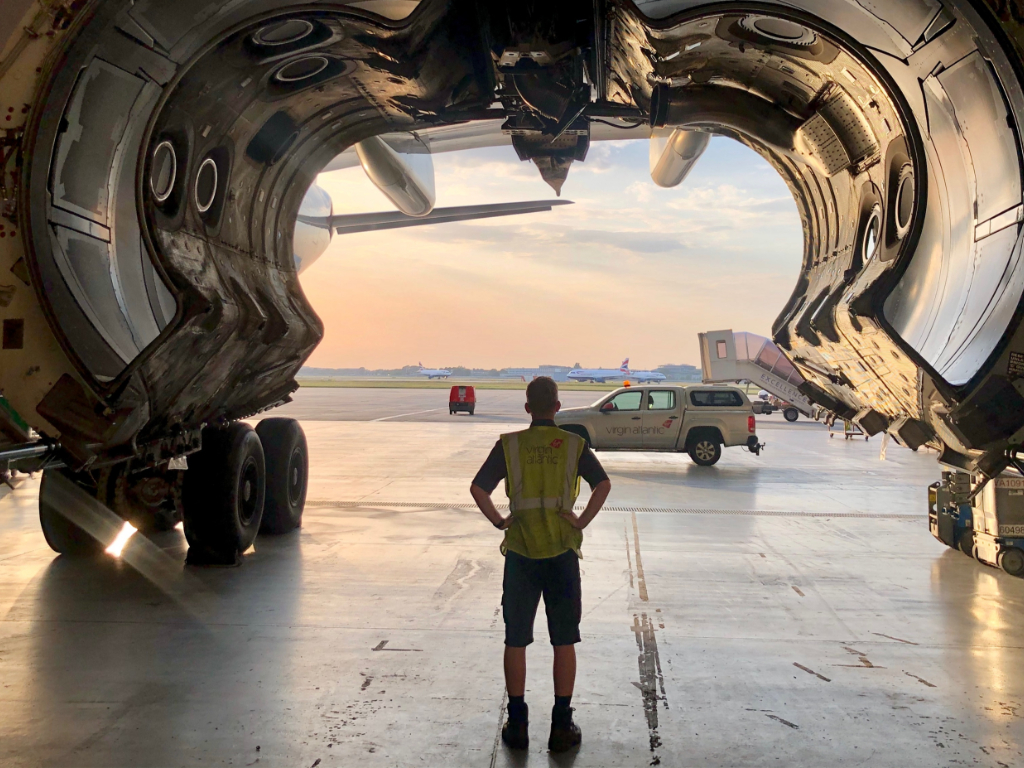
Fuel
For over 15 years, we’ve championed the development and use of Sustainable Aviation Fuel (SAF), and in 2023 we became the first commercial airline to fly across the Atlantic with 100% SAF.
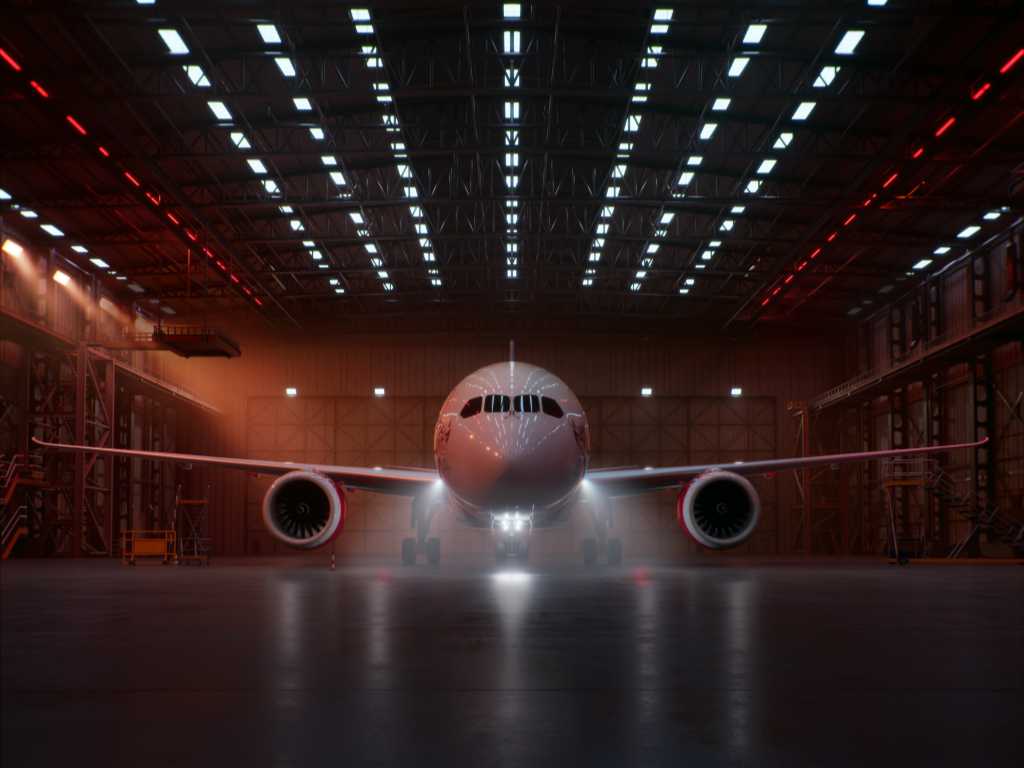
Flight100
On November 28th, we made history with Flight100— becoming the first commercial airline to fly across the Atlantic on 100% SAF - marking a key milestone on the path to decarbonising aviation.
